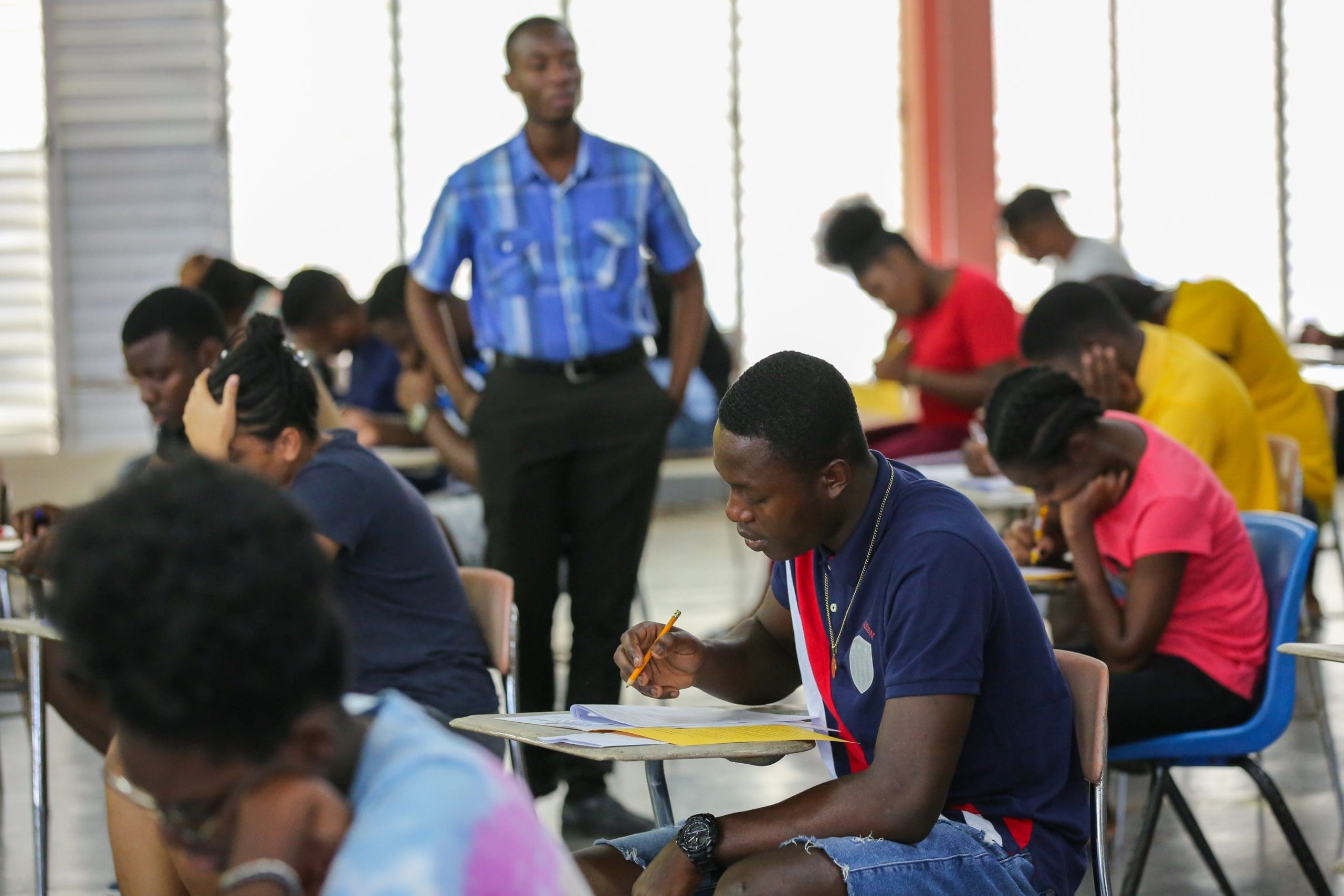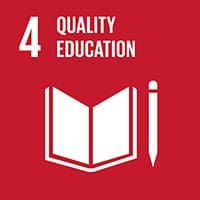
Image: Students at the College of Agriculture, Science & Education (CASE) in Jamaic. ©CABI.
16/03/23
Story of impact
Improving science reporting in Nigeria
In brief: A lack of science communication skills training in Sub-Saharan Africa has negatively impacted the quality of the region’s science journalism. A dearth of journalists with the skills to communicate science has implications for the public’s understanding of complex, important issues that affect them. Addressing the science communication skills deficit in universities will help reliable scientific knowledge reach millions, including policymakers, who use that knowledge to help shape important legislation.
Why it matters: In these times of global challenges such as climate change, COVID-19 and food insecurity, science journalism has a vital role in educating and informing the public about complex issues. Enhanced science communication skills can make journalists in Sub-Saharan Africa central in informing the public about these issues.
The big picture: Scholars across Africa produce high-quality research, but a lack of science communication skills makes it harder to explain research findings to the public and policymakers, who could benefit from it. If African universities can improve science communicators’ skills, millions of people could benefit from better access to knowledge.
By the numbers: Between April 2018 and December 2019, a total of 1,563 students completed Script (science communication and science journalism) courses at Nasarawa State University in Nigeria. Training hundreds of journalism students each year in how to report on science means that these future journalists will reach millions of citizens with accurate, informative science reporting.
Background
Sub-Saharan African newspapers operate on tight budgets, and few can afford a dedicated science reporter, so non-specialist journalists are often called on to cover science. This reduces the quality of science journalism and, consequently, the quality of articles on scientific issues affecting the public. It also reduces policymakers’ access to accurate, evidence-based science journalism, which can support more effective legislation.
Says Prof Emmanuel Samu Dandaura, who teaches development communication at Nasarawa State University: “The problem is not that African scholars are not researching, but that the common man who could benefit from their research hardly knows what their reports are about. In many disciplines you find a disconnect between practice and theory. Most research is left gathering dust in libraries and universities. Nobody translates the implications of the findings for the common man, who would find it helpful as he grapples with his day-to-day existence.”
In 2013 SciDev.Net published a report reviewing working conditions and practices, professional ethos and expectations within science journalism globally. It identified a skill shortage among journalists in Sub-Saharan Africa, North Africa and the Middle East and the need to provide science communication training. SciDev.Net reviewed ways to foster more reliable, research-based scientific information.
What action did SciDev.Net take?
In March 2018, SciDev.Net launched the Script training programme for journalists and scientists. The aim: to strengthen science communication and science journalism in English-speaking countries in Sub-Saharan Africa, improving the understanding of scientific issues by the public and specialists.
Script was seen as playing an important role in presenting policymakers with quality science journalism, thereby helping them achieve more evidence-based poverty alleviation interventions.
SciDev.Net also sought to improve governance by giving journalists, scientists and public greater capacity to hold policymakers to account on science-based interventions.
Initially, two Script courses were delivered online and at universities: Media skills for scientists and Science communication skills for journalists.[1] At Nasarawa University, SciDev.Net’s Dr Charles Wendo – science journalist, veterinarian and media trainer – gave training in science communication and journalism. Undergraduate and postgraduate science students studied Script as part of their curriculum, taking end-of-course examinations.
Between April 2018 and December 2019, the courses were completed by 1,515 undergraduates and 48 postgraduates. Script enrolment exceeded the target by 450%. Script received 96% positive feedback from university course users who completed the feedback survey, training workshop and networking event, and 97% of student respondents felt the training would be useful to their career.
Script courses completed by students at Nasarawa University

What was the impact of SciDev.Net’s action?
The ability of communication professionals, journalists and scientists to learn from each other was strengthened through further training and networking events. Nasarawa University offered Training of Trainers sessions to the lecturers, giving them the skills to deliver Script training. This also resulted in the staff building links with other institutions and sharing the knowledge they had gained.
Since introducing Script at Nasarawa University, four more African universities have independently adopted and approved the Script science journalism curriculum without major amendment. In each case, the journalism and communication departments scrutinised the curriculum, which they then forwarded to the Senate for further examination. In Nigeria it was approved by the National Universities Commission, which means it is recommended for teaching in all Nigerian universities.
“Script has been an overwhelming success,” says Prof. Dandaura. “It is an innovative programme that has delivered science communication skills to hundreds of my students, who today write thousands of high-quality news stories that are impacting and informing millions of people in Africa.
“The Script programme has empowered my students and catalysed the power of education. We must sustain the momentum in order to reach our goal of raising scientific communication and knowledge across the regions.”
* In Sub-Saharan English-speaking Africa
A third course, Science Communication Skills for Press Officers, was launched in March 2020. This case study focuses on the first two courses.
Relevant SDG:

